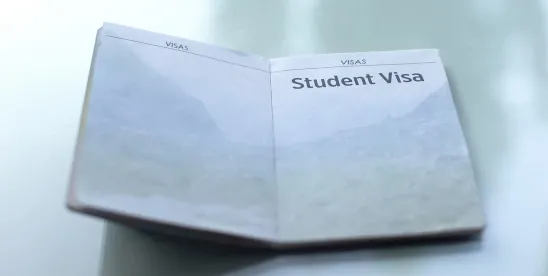On Monday, June 23rd, the Department of State began applying new, stricter screening and vetting requirements for F (student), J (exchange visitors), and M (training) visa applicants. The announcement ends the temporary suspension of visa processing for these visa categories. The suspension began last month while the Department developed and distributed new guidelines to consular officers for applying the updated standards to new visa applications.
A press release by the Office of the Spokesperson of the Department of State on June 18th, 2025 ties the new requirements to the need to identify applicants who are inadmissible to the United States, or who pose threats to U.S. national security based on conduct, advocacy, or support of activities considered potentially or actually harmful to U.S. interests and individuals.
Enhanced Screening Builds on Existing Policy and Procedures
All visa applicants, including those applying for F, J, and M visas are already subject to screening for possible grounds of inadmissibility, including support for/or involvement in terrorist or other criminal activity. Applicants have been required to provide their social media details since 2019, so the new standards represent a tightening of existing procedures rather than the implementation of new ones. For example, consular officers have reviewed social media presence for some time to identify applicants who may be working without authorization, based on posts and photographs in their social media profiles. However, the new guidelines expand the scope of the review of applicants’ online presence to include indicators of advocacy, aid or support for foreign terrorists and support of unlawful anti-Semitic harassment or violence, according to press outlets that have received a copy of a Department of State cable providing guidance to consular officers in implementing the new vetting requirements.
Because a considerable backlog of visa cases in these three categories has built up since the end of May, the guidelines reportedly instruct consular officers to prioritize visa applications for physicians applying for J exchange visas and for students looking to study at U.S. universities where international students constitute 15 percent or less of the total student body. How this instruction will be applied is unclear, but it may have considerable impact on applicants to some of the top educational institutions in the country, including Ivy League schools and top STEM and state research universities.
Impact on Consular Operations
Student visa adjudications during the busy summer months have been significantly delayed following the earlier pause in visa processing announced by the Department in May, and the new guidelines may delay visa processing, and possibly disrupt the travel plans of many visa applicants. The Department has not announced any new staffing increases to accommodate the new vetting requirements. Students, universities, and employers should prepare for delayed visa appointments, and increased administrative review for cases where any potentially incriminating activity is uncovered as a consequence of the stricter standards.




 />i
/>i
